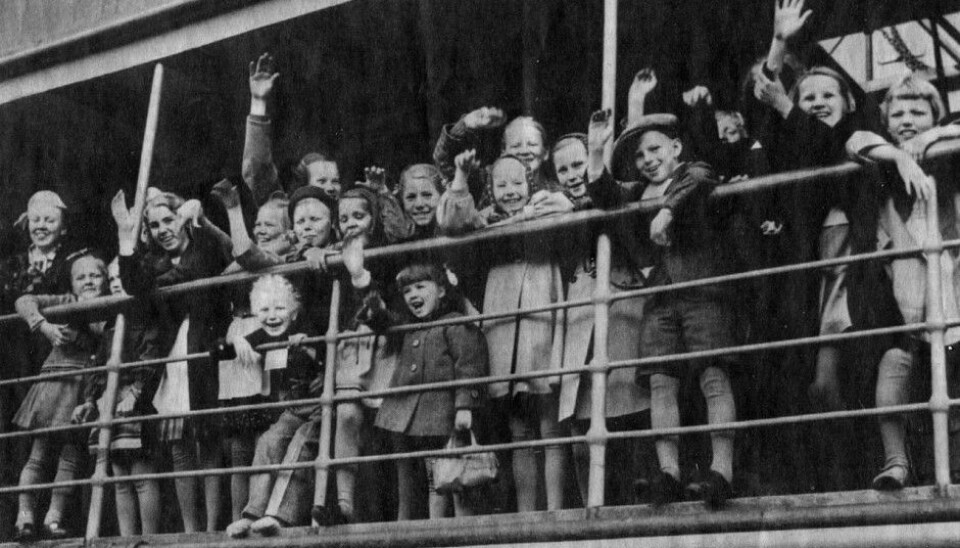
Traumatic childhood experiences pass down to next generation
Thousands of Finnish refugee children were evacuated to foster homes in Sweden during WWII. Many of their descendants continue to struggle psychologically with the trauma that caused.
It seemed like a good idea. With harsh conditions in war-torn Finland, and threats of a Soviet invasion, many Finnish parents sent their children abroad. Some 70,000 kids aged 12 and under were sent to foster homes, primarily in neighbouring, neutral Sweden.
In retrospect, it has been seen that many of these children were traumatised by the experience. A study in BMJ in 2015 showed that the girls who were sent off ran twice the risk of being admitted to hospitals with mental illnesses later in life than their siblings who had not left home.
But does it stop there?
Other studies in the past years have indicated that such traumatic experiences not only tend to affect those who suffered them, but also the next generation. How has life been for the children of these young wartime evacuees from Finland?
Greater risk of depression
Torsten Santavirta and colleagues wished to find out.
They have studied health data from over 90,000 Finns. The researchers compared children of evacuees who were sent to Sweden with the children of their siblings who remained at home with families in Finland.
None of these cousins had been sent off anywhere themselves. They grew up in peacetime. But did they run a higher risk of mental illness, depending on what their parents had experienced as children?
It seems so.
The results showed that the daughters of the young female evacuees ran a higher risk of psychiatric hospitalizations, especially for mood disorders such as depression and bipolar disorder.
Sons of evacuees were not as vulnerable. They ran the same risk of psychiatric hospitalizations as children of aunts who were not sent away. The same applied for children of evacuated males.
Unknown cause
This supports the idea that traumas can be transmitted from one generation to another, write the researchers in this week’s JAMA Psychiatry.
But it is still unclear how.
The results indicate that this association cannot only be explained by mental illnesses among the parents. In fact, the risk of being hospitalized was higher among children of evacuee mothers, even when the mothers did not have serious mental disorders.
Perhaps the evacuation in their childhood had an impact on how the parents treated their own children. Or maybe the children who were sent away had undergone physical changes which were transferred to their offspring during pregnancies.
Epigenetics
Studies of animals have shown that negative experiences can alter epigenetics – the way that genes get used. Such changes in regulation of genes can be inherited. In 2015 a study was published that showed this also occurred amongst descendants of Holocaust survivors, writes the Norwegian Biotechnology Advisory Board.
More studies are needed to explain what happened to these Finnish children, write Santavirta and colleagues in the article from Jama Psychiatry.
The study has its weaknesses which should be noted.
It is an observation study. Such studies cannot conclude what causes leads to what results. There is no insurance that being sent away from their parents was the reason why the children ran a higher risk of mental disorders. Other traits or actions of their parents could possibly have played in.
Intriguing gender difference
The study supports the idea that war experiences can have consequences for coming generations; write Theresa S. Betancourt from Boston College School of Social Work and two of her colleagues to Jama Psychiatry.
They praise the thorough study and find it particularly interesting that the results differed according to gender: It seems that only women tend to be impacted by the evacuations. They would like to see this aspect pursued by further studies.
But they think one should be cautious about comparing these results to children who have experienced recent and current armed conflicts. These kids today have often been exposed to much greater traumas over longer periods.
Betancourt and colleagues point out that earlier research of war trauma effects between generations have come up with differing results.
They conclude that new studies need to attempt to unravel these complicated associations.
-------------------------------------
Read the Norwegian version of this article at forskning.no
Translated by: Glenn Ostling
Scientific links
- T. Santavirta, N. Santavirta, S. E. Gilman, Association of the World War II Finnish Evacuation of Children With Psychiatric Hospitalization in the Next Generation, JAMA Psychiatry, November 2017.
- T. S. Betancourt, D. Thomson, T. J. VanderWeele, War-Related Traumas and Mental Health Across Generations, JAMA Psychiatry, November 2017






